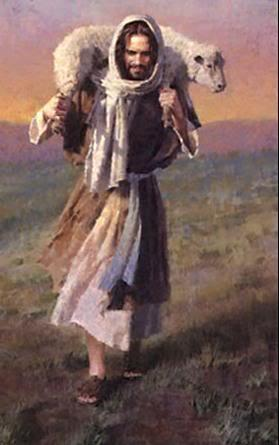The Lost Coin (Luke 15:8–10)
Luke 15:8–10
Or what woman, having ten drachmas, if she lose one drachma, does not kindle a lamp, and sweep the house, and seek with care until she finds it? And when she has found it, she calls together her friends and neighbors, saying, Rejoice with me, for I have found the drachma which I had lost. So I say to you, There is joy in the presence of the angels of God over one sinner who repents.
Ten
AE 675:10. Because “ten” signifies all and much, therefore that number is used by the Lord... in passages where all and much must be understood. As in Luke [above]....
“Ten” here signifies much. This is said of a “woman,” and that “she would light a lamp and sweep the house” because of the spiritual sense in every particular of the Word. In that sense a “woman” signifies the church in respect to the affection of truth, thus also the affection of truth itself which belongs to the church. The “drachma” signifies truth. “To lose the drachma” signifies to lose one of the truths or the knowledges of truth. “To light a lamp” signifies self-examination from affection. “To sweep the house” signifies to traverse the whole mind and to examine every particular where the truth lies hidden. This is the spiritual sense of these words.
Kindling a lamp
AC 9570. The light of the spiritual heaven is the Divine truth that proceeds from the Lord, and the consequent faith, intelligence of truth, and wisdom of good... How the case is with the light of the spiritual heaven shall be briefly stated. In the Lord’s celestial kingdom, which is the inmost or third heaven, there is a light which immeasurably surpasses the light in the spiritual kingdom, which is the middle or second heaven. The light of the celestial kingdom, that is, of the inmost heaven, does not appear as light, but as flame, the reason being that the good of love reigns in this heaven, and in heaven the good of love is presented to view as flame. But in the Lord’s spiritual kingdom, which is the middle or second heaven, there is a light which immeasurably surpasses the light of the world, and yet it appears bright white, for the reason that in this heaven there reigns the truth of faith from the good of charity; and in heaven the truth of faith from this good is presented to view as a bright white light. From this in the Word also, “light” signifies the truth which is from good, and in the supreme sense the Divine truth that proceeds from the Lord’s Divine good. From all this it can now be seen what is meant by “the light” of the spiritual heaven, and what by “the flame of the lamp,” from which is this light.
Sweeping the house
AC 3142. For I have swept the house. That this signifies that all things were prepared, and full of goods, is evident from the signification of “sweeping,” as being to prepare and to be filled (about which more below); and from the signification of a “house” as being good. (Concerning “a house” see above, n. 2233, 2234, 2559; and that man himself, from the good which is in him, is called a house, n. 3128.)
The reason “to sweep” signifies to prepare and to be filled, is that nothing else is required of man than to sweep the house, that is, to reject the cupidities of evil and the derivative persuasions of falsity. For then he is filled with goods, because good is continually flowing in from the Lord—but into “the house,” that is, into the man who is purified from such things as impede the influx, that is, which reflect, or pervert, or suffocate the inflowing good. Hence it was common with the ancients to speak of sweeping or cleaning the house, and of sweeping and preparing the way. And by sweeping the house was meant to purify oneself from evils, and thereby to prepare oneself for goods to enter; but by sweeping the way was meant to prepare oneself so that truths might be received, for by a “house” was signified good, n. 3128; and by a “way,” truth, n. 627, 2333.
Questions and Comments
- Have you ever experienced a truth that you thought you understood becoming obscure or no longer easy to understand? This parable seems to suggest what we should do when that happens.
- AE 675:10 says that “to light a lamp” means self-examination from affection. What does AC 9570 suggest we use to examine ourselves?
- What does it mean to sweep the house?
- Why isn’t it enough to just kindle the lamp?
- The parable describes the woman as being very happy when she found the lost drachma and wanting to share her happiness with friends and neighbors. Have you ever wanted to share something new you have learned from the Word with the same sort of excitement?
| previous |  |
next |
|---|


